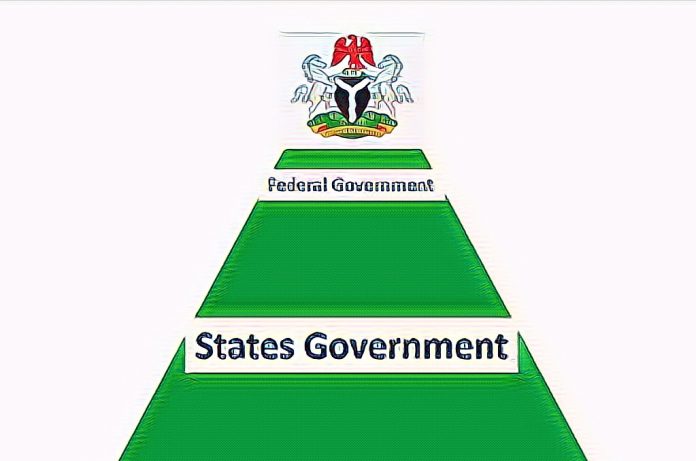KEY POINTS
- Centralized control limits Nigerian states’ fiscal autonomy.
- Resource-rich regions demand equitable revenue sharing.
- Calls for restructuring aim to balance federal-state power.
Nigeria’s federal system has long been characterized by a dynamic tension between the central government and its constituent states.
This ongoing power struggle has shaped the nation’s political landscape, influencing governance, resource distribution, and regional autonomy.
Historical roots of Nigeria’s federalism
The foundation of Nigeria’s federal structure was laid during the colonial era. In 1914, the British amalgamated the Northern and Southern protectorates, creating a unified entity.
The united administration function had the effect of gathering different ethnic populations, cultural and religious communities under one rule.
The government established a federal system to manage diversity throughout the regions yet keep national oversight. Time brought forth additional regions across Nigeria to align with its growing social pluralism.
Centralization of power and state autonomy
Despite the federal arrangement, there has been a persistent centralization of power in Nigeria.
All major sources of funding are under federal government control including petroleum profits tax, import duties and mining rents.
State and local governments frequently need to depend on federal financial distributions, as their funding sources because of the central government’s financial control.
The centralized financial control has generated conflicts between states which strive to attain increased independence to solve problems within their jurisdictions.
Resource control and fiscal federalism
The power conflict primarily centers on controlling available resources. For many years the states holding oil reserves in the Niger Delta area continue to advocate for increased control of their local oil wealth.
Regional leaders maintain that present-day revenue sharing methods underperform by not offering adequate payment to deal with environmental deterioration and develop their regions.
The ongoing movement has sparked discussions about police restructuring and the push for federalism that would give states decision-making power over their resources with central contribution.
Ethnic diversity and political representation
The various ethnic groups present in Nigeria contribute complex elements to how central and state governmental authorities interact. Major ethnic groups who hold political power positions create a sense of exclusion for participants from lesser ethnic groups.
The unequal representation between states has led people to request new states that will provide better federal resource access and better representation.
This continuous fight for balanced power distribution between regions consistently affects electoral processes in addition to influencing both political governance.
Judicial interventions in federal-state conflicts
Through careful oversight, the judiciary especially the Supreme Court intervenes actively to resolve government conflicts between federal and state governments.
Judicial decisions on significant matters in history have handled issues including natural resource management as well as defining federal government boundaries of power.
Judicial interventions function to preserve the constitution and maintain governmental equilibrium but they display the intricate features of federal systems in Nigeria.
In conclusion, the power conflict between Nigeria’s central government and its states results from diverse historical conditions, economic adjustments and social-political situations.
Building thriving national unity and regional diversity mandates continuous nation-wide discussions, fair resource distribution and unconditional federalism practices.



